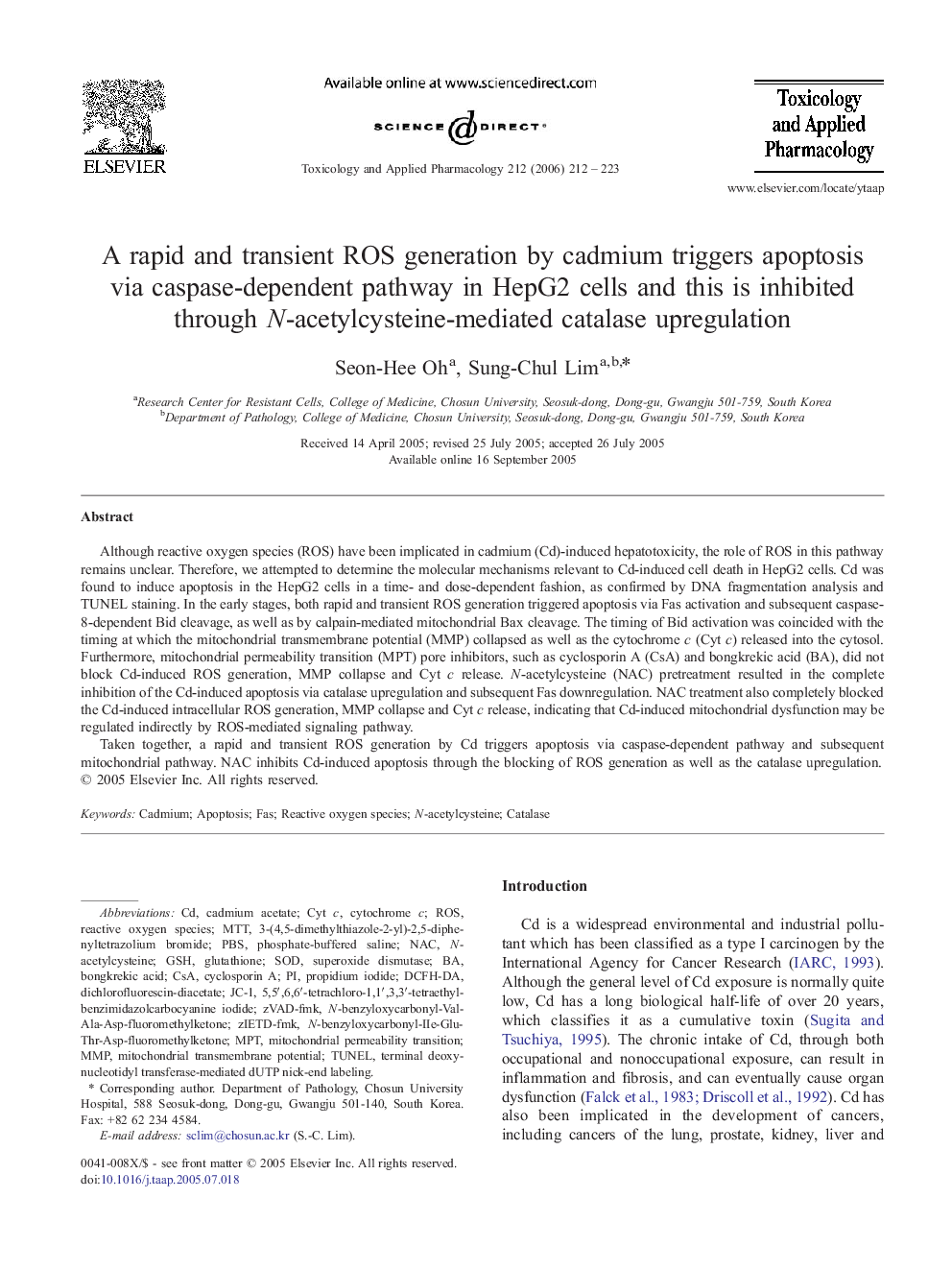| کد مقاله | کد نشریه | سال انتشار | مقاله انگلیسی | نسخه تمام متن |
|---|---|---|---|---|
| 2571629 | 1128643 | 2006 | 12 صفحه PDF | دانلود رایگان |

Although reactive oxygen species (ROS) have been implicated in cadmium (Cd)-induced hepatotoxicity, the role of ROS in this pathway remains unclear. Therefore, we attempted to determine the molecular mechanisms relevant to Cd-induced cell death in HepG2 cells. Cd was found to induce apoptosis in the HepG2 cells in a time- and dose-dependent fashion, as confirmed by DNA fragmentation analysis and TUNEL staining. In the early stages, both rapid and transient ROS generation triggered apoptosis via Fas activation and subsequent caspase-8-dependent Bid cleavage, as well as by calpain-mediated mitochondrial Bax cleavage. The timing of Bid activation was coincided with the timing at which the mitochondrial transmembrane potential (MMP) collapsed as well as the cytochrome c (Cyt c) released into the cytosol. Furthermore, mitochondrial permeability transition (MPT) pore inhibitors, such as cyclosporin A (CsA) and bongkrekic acid (BA), did not block Cd-induced ROS generation, MMP collapse and Cyt c release. N-acetylcysteine (NAC) pretreatment resulted in the complete inhibition of the Cd-induced apoptosis via catalase upregulation and subsequent Fas downregulation. NAC treatment also completely blocked the Cd-induced intracellular ROS generation, MMP collapse and Cyt c release, indicating that Cd-induced mitochondrial dysfunction may be regulated indirectly by ROS-mediated signaling pathway.Taken together, a rapid and transient ROS generation by Cd triggers apoptosis via caspase-dependent pathway and subsequent mitochondrial pathway. NAC inhibits Cd-induced apoptosis through the blocking of ROS generation as well as the catalase upregulation.
Journal: Toxicology and Applied Pharmacology - Volume 212, Issue 3, 1 May 2006, Pages 212–223